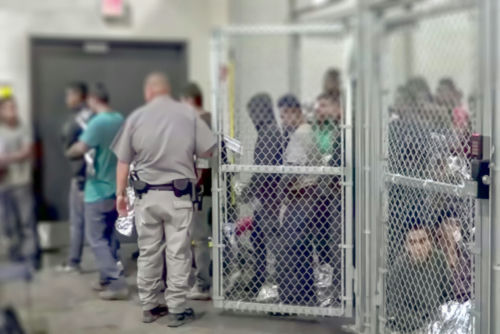President Trump’s sweeping new immigration directives have upended the political battleground, igniting fierce debate over border security, executive power, and the future of American sovereignty.
Trump’s 2025 Immigration Overhaul: Swift Action and Immediate Impact
On January 20, 2025, President Donald Trump was sworn in for his second term, immediately making good on his pledge to crack down on illegal immigration. Within hours, he signed executive orders declaring a national emergency at the southern border, suspending most refugee admissions, and ending practices like “catch and release” that many conservatives blamed for previous surges in illegal crossings. The administration also quickly enacted the Laken Riley Act, mandating detention for immigrants charged with or convicted of certain crimes. These measures led to a dramatic decrease in illegal border crossings, with numbers dropping to their lowest level in decades.
Trump’s swift policy changes also included blocking asylum seekers from entering the U.S. and eliminating birthright citizenship for children born to non-permanent residents. To enforce these new directives, he appointed Tom Homan as “border czar,” empowering Immigration and Customs Enforcement (ICE) to conduct aggressive raids, including in major cities and sensitive locations like schools and churches. The administration argued these steps were necessary to restore national security and uphold the rule of law, rallying support from communities long frustrated by what they viewed as unchecked illegal immigration under the previous administration.
Constitutional Tensions and Executive Authority
The Trump administration’s aggressive tactics have tested the boundaries of executive power and ignited serious constitutional concerns among civil liberties advocates. On March 14, 2025, Attorney General Pam Bondi issued a directive allowing law enforcement to enter migrant homes without warrants, a move that critics argue directly challenges Fourth Amendment protections against unreasonable searches and seizures. Deportation operations have expanded, with ICE reportedly conducting arrests in locations previously considered off-limits, fueling heated debate over the balance between national security and individual rights.
Legal experts and advocacy organizations have launched multiple challenges, questioning whether the administration’s policies circumvent due process and established legal protections for immigrants. The administration has brushed aside these concerns, characterizing opposition as obstructionist and arguing that strong enforcement is essential to protect American families and uphold the nation’s laws. This standoff has sharpened the national conversation over what it means to defend the Constitution in the face of evolving threats and complex immigration challenges.
Human Impact: Mass Deportations and Community Fallout
The scale and speed of deportations under the new policies have sent shockwaves through immigrant communities across the country. ICE operations, now unfettered by previous restrictions, have resulted in widespread arrests and removals, with reports indicating that over 207,000 migrants were deported by June 2025. The administration’s decision to eliminate the “sensitive locations” policy means that families now face the prospect of separation even in schools or places of worship, intensifying a climate of fear and uncertainty for millions.
While supporters argue this is a necessary correction after years of lax enforcement, critics highlight the impact on families and communities, describing scenes of confusion and distress as loved ones are detained or deported without warning. Conservative backers, however, see these actions as a hard-won victory for border integrity and American sovereignty, crediting Trump for finally delivering on promises to restore order and secure the nation’s future.
Political Fallout and the Conservative Response
The new policies have reignited fierce partisan debate. Conservative lawmakers and grassroots supporters praise the administration’s resolve, insisting that strong borders and rigorous enforcement are indispensable to national security and economic stability. They argue that the chaos and lawlessness seen in recent years—marked by unchecked illegal immigration, rising crime, and economic strain—were a direct result of failed leftist policies and a lack of political will in Washington. For many on the right, Trump’s actions represent not just policy shifts but a reclamation of American values and the Constitution itself.
https://www.twitter.com/realDonaldTrump/status/1766549801234567890
Opponents, meanwhile, warn that eroding constitutional protections sets a dangerous precedent and undermines the nation’s commitment to fundamental rights. As the legal battles continue, the outcome will shape not only the fate of immigration policy but the broader contours of executive power and constitutional governance for years to come.
Sources:
Immigration policy of the second Trump administration – Wikipedia
The Trump Administration’s 2025 Changes to Immigration Law …
Protecting The American People Against Invasion – The White House

